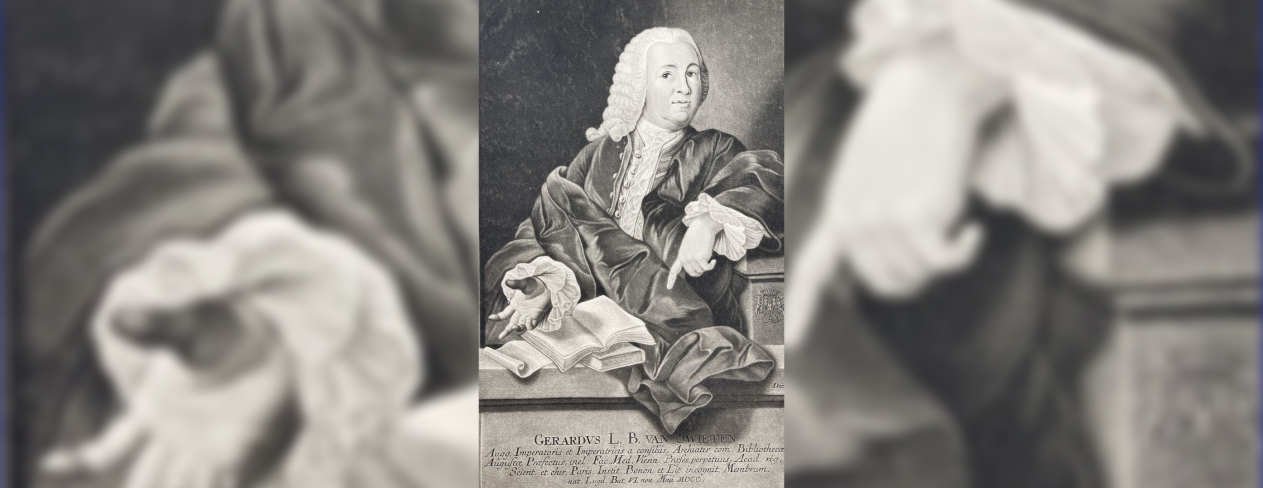
So far, Archduchess Marianne has been quite alone in her investigation, with the exception of Amalia and Father Franz, her initial supporters and sources of inspiration. Now she finds a new collaborator of similar disposition in the person of the court physician Doctor van Swieten. Marianne’s instinctive repulsion towards the ignorant gossip surrounding Princess Schwarzenberg begins to be strengthened by rational analysis and scientific explanation.
Doctor Gerard van Swieten (1700–1772) was one of the most important advisors to the Empress, best known as the moderniser of academic medical education in Vienna. He opposed esoteric or philosophical explanations of illness in favour of a quantitative approach to medicine, and he focused medical attention on material facts. Van Swieten introduced iatromechanics, an empirical and experimental concept of pathological teaching regarded as innovative in the eighteenth century. The iatromechanists described the human body as a machine which could be analysed using mathematics and physics. For medical diagnosis, they looked for faults in the structure or function of the bodily apparatus, observed symptoms at the bedside, kept medical records, and took patients’ medical history into account. Even the integration of thermometer measurements into clinical practice is owed to doctors like van Swieten.
Access to the Metatext via placing an order for an augmented product. See Terms of Use